
Syrian olive trees put down roots in Kurdish Iraq
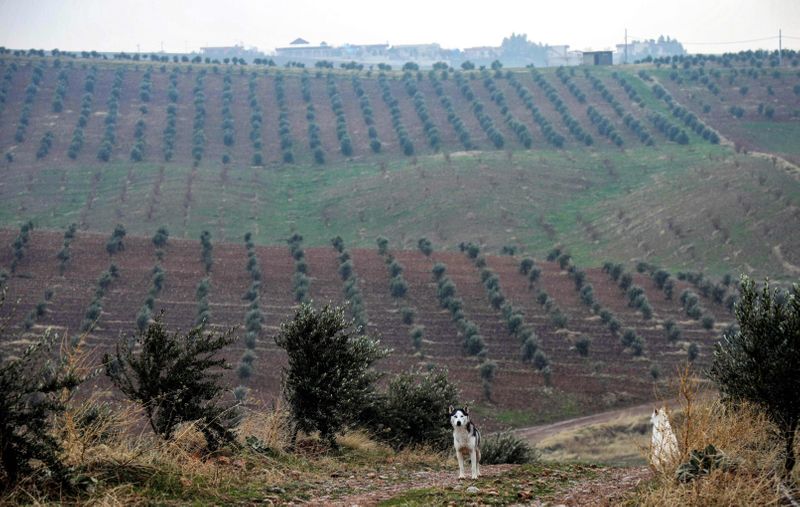
Tucked away in the rolling hills of Iraqi Kurdistan is a hidden treasure: tens of thousands of olive trees, thriving in a new homeland after being smuggled from neighbouring Syria.
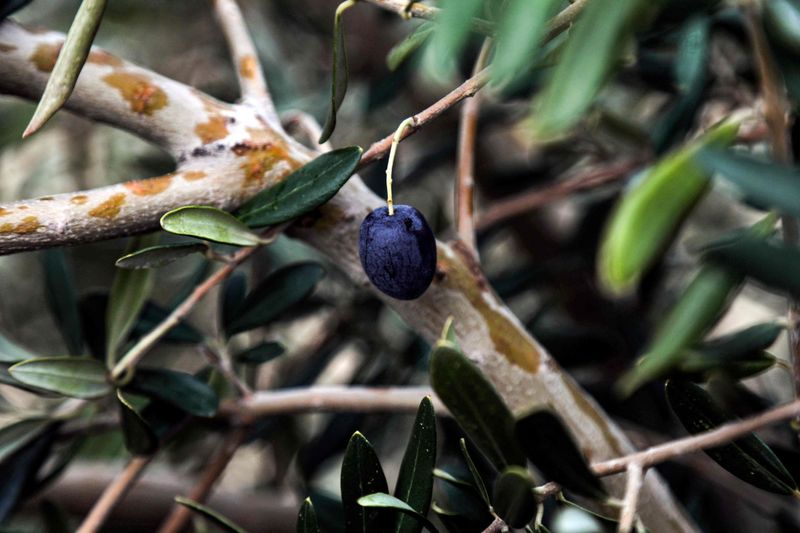
Their branches are heaving with bright purple-black olives ready to be picked. Their caretaker, Syrian Kurdish businessman Suleiman Sheikho, is proud to have brought the olive oil business to Iraq's autonomous north.
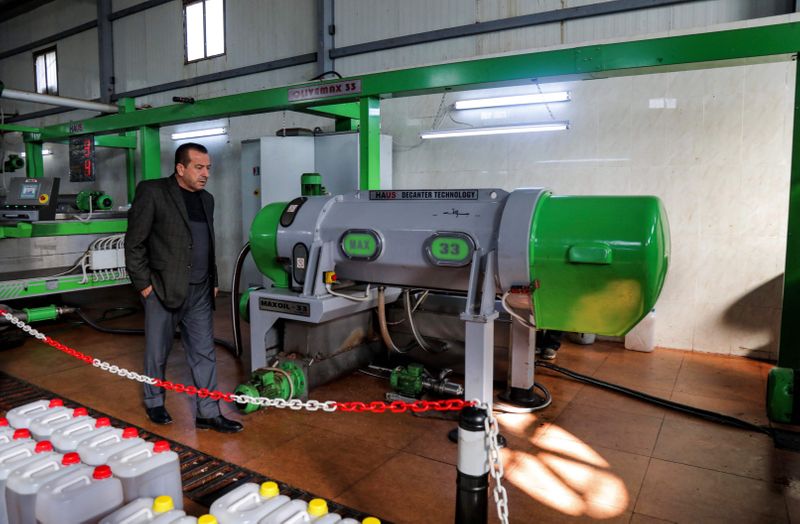
"This year was a good year," said 58-year-old Sheikho, who has been transporting trees from his native Afrin in northwest Syria into Kurdish Iraq since 2007.
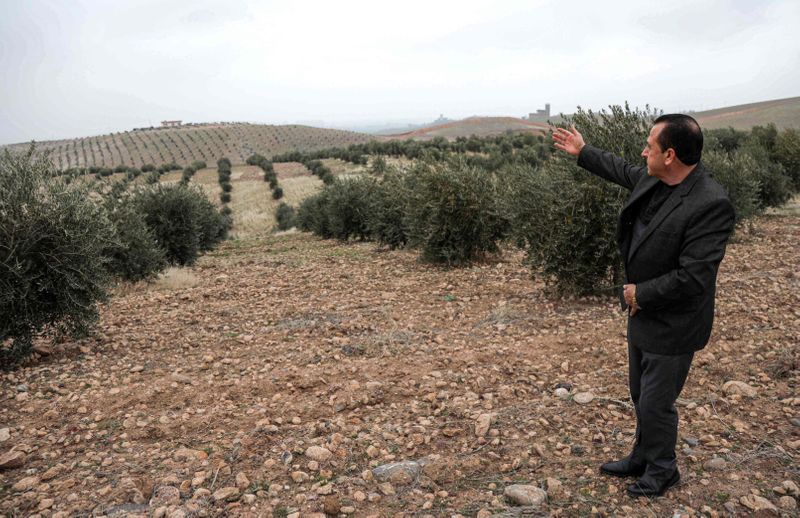
"On this farm I have 42,000 olive trees, all of which I brought from Afrin when they were three years old," he told AFP, gesturing to neat rows reaching the horizon. He transported some of his trees legally, but smuggled others across the border, managed on both sides by autonomous Kurdish authorities.
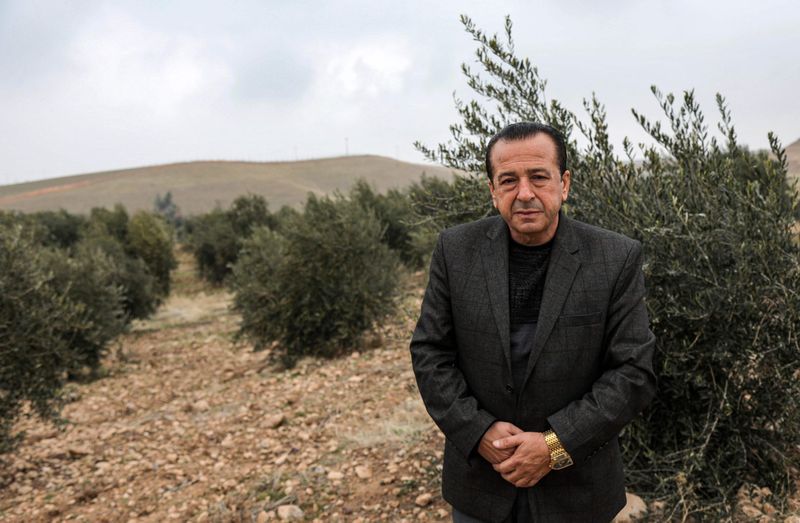
Sheikho himself is a fourth-generation olive farmer and had 4,000 trees in Afrin that are older than a century. The slender businessman, who once served as the head of Afrin Union for Olive Production, sprung into action.
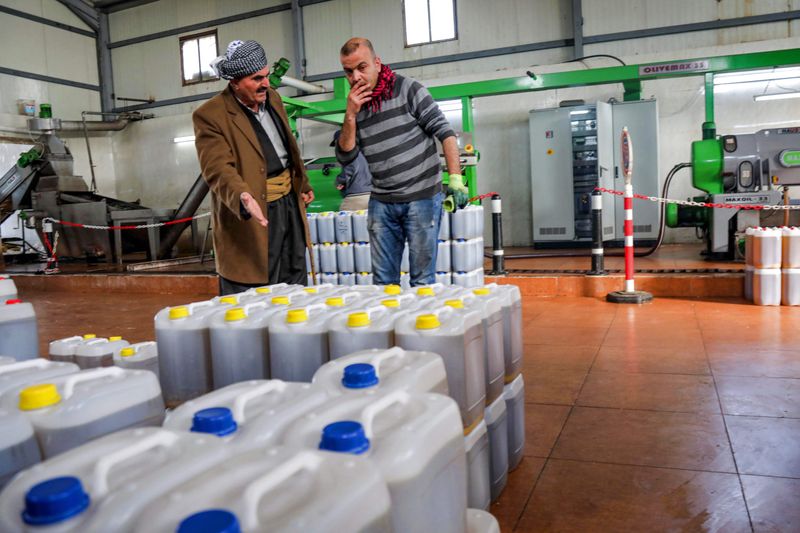
An Iraqi Kurdish man (L) arrives to buy olive oil from a processing plant at an olive farm made of trees smuggled from neighbouring Syria.
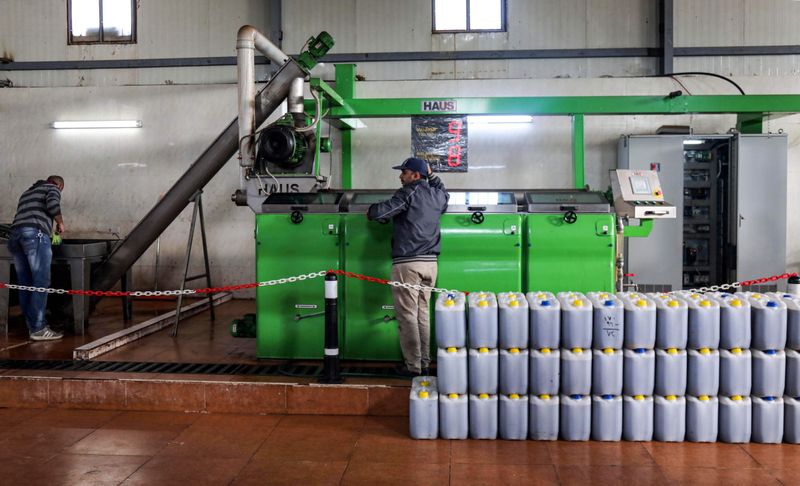
Syrian Kurdish workers from Afrin operate olive oil processing machinery. Sheikho is believed to be the first person who introduced the concept of olive farming and business to Iraqi Kurdish farmers.
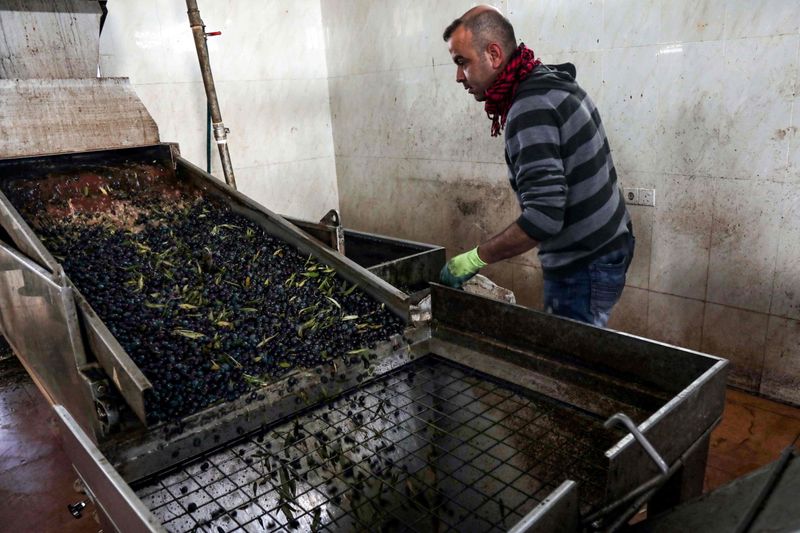
A Syrian Kurdish man from Afrin feeds harvested olives into processing machinery at an olive farm made of trees smuggled from neighbouring Syria.
Raw olives are a staple on Levantine lunch tables, while their oil is both used in cooking and drizzled on top of favourite appetisers like hummus.
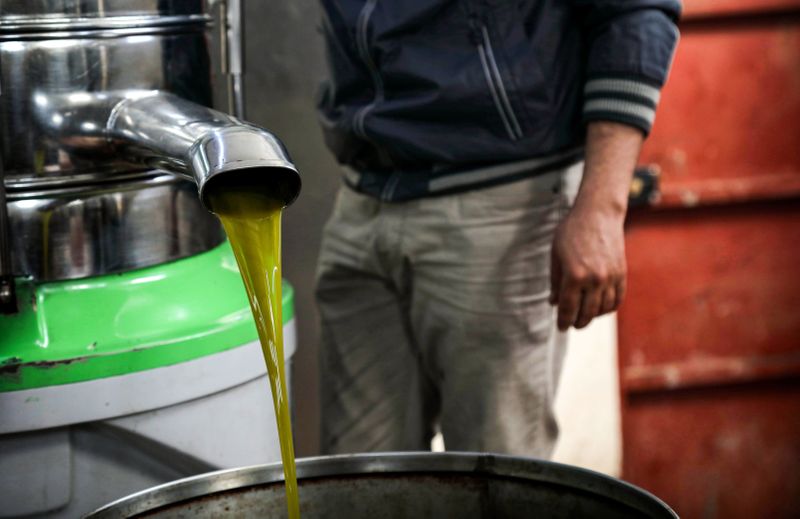
The oil can also be used to make soap, while the dark, sawdust-like residue from olives pressed in the autumn is often burned to heat houses in winter.










